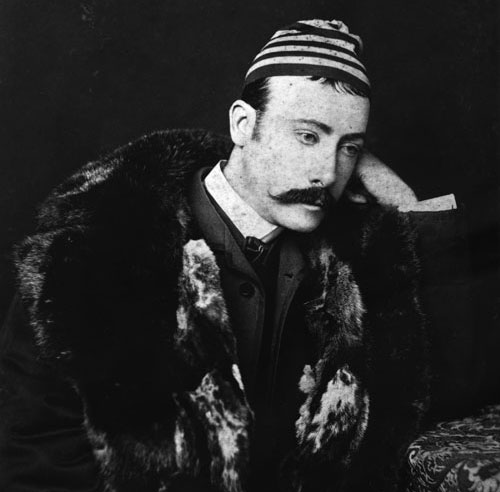FRANCIS GRIERSON, English-born American writer and singer, born (d: 1927) born in Birkenhead, England. His family migrated soon afterward to the United States and by 1849, had settled in Sangamon County, Illinois where he witnessed the Lincoln-Douglas debates. In 1869, Shepard, convinced of his “intuitive” musical talent, left for Europe to seek fame and fortune. Shepard’s mother did note in a letter, however, that her son took music lessons in his early childhood, so not all his talent was derived from spiritual revelation.
Shepard had superb self-confidence in his charm and talent, and he launched himself on his world travels without funds, letters of introduction, or prior reputation. Yet somehow (hmmmmm…) he found his way into the salons of Paris, where his musical improvisations and singing of operatic selections charmed his audiences and resulted in a string of invitations.
In 1871, Shepard went to St. Petersburg, where he played for the Czar. When Shepard returned to the United States, lived in Chicago in 1880, and reputedly gave seances in the home of a prominent medium. He claimed to be in touch with ancient Egyptian spirits, and put on a remarkable musical performance which included singing “in two voices,” made possible by his great vocal range. Sometime in 1885, Shepard met Lawrence W. Tonner, a man some fifteen years younger than himself, who became Shepard’s devoted secretary and lover for over forty years. When Shepard was down on his luck in later years, Tonner supported him by giving French lessons or by working in a tailoring shop.
When Shepard returned to San Diego ten years later, it was no longer a “placid region,” but a bustling city. He made San Diego his home for two eventful years, during which he built the remarkable Villa Montezuma and underwent a significant artistic and spiritual transformation. The Villa provided an impressive background, indeed, for the lavish receptions that Shepard accorded visiting celebrities.
Joining the group of poets, artists and musicians who formed the nucleus of The Golden Era magazine, was an important part of the artistic and spiritual transformation that Shepard underwent during his short residence in San Diego. Shepard embarked on the literary career that became the main outlet for his creativity for the remainder of his life. Symbolic of the change in his life was Shepard’s adoption of a literary name: no longer Jesse Shepard, he became “Francis Grierson.”
In the fall of 1888, Shepard and Tonner went to France to arrange for the publication of a collection of his essays, titled Pensées et Essais. They returned to San Diego in August 1889, and made arrangements for his departure. In December, Shepard announced he was leaving San Diego permanently and consented to give a public farewell concert. Shepard also completed the sale of the Villa Montezuma and all its furnishings.
Shepard’s final years served as poignant testimony to his chronic financial difficulties. Now an elderly man, Shepard depended upon his friend, Tonner, for economic support and encouragement. A small band of expats also lent support sometimes holding Sunday afternoon salons at which Shepard presided. He was forced to sell all but a few of the treasured possessions he still owned, and shortly before his death, pawned a beloved gold watch given him by Edward VII.
His pride and dignity remained intact, however, for Shepard did not allow his impoverished circumstances to affect either his outward appearance or inner spirit. Leetha Hofeller, a Los Angeles author who knew Shepard and Tonner well during the 1920s, described Shepard, then in his seventies, as “tall, straight remarkably profound and at the same time delightfully simple.” He had seemed in usual health… and he had been smiling and laughing with the company even a few moments before he passed away at age 79.
